Tutorials
This area of learning content consists of a series of tutorials to help you familiarize yourself with the Manufacture workspace in Fusion.
Model datasets
Each tutorial shows you how to locate and open the required Fusion model dataset in the CAM Samples folder. You cannot modify the source files; they are read-only. You will create and work with a personal copy of each tutorial dataset.
Completed versions of the datasets with all toolpaths created are also included in the folder if you wish to review each of the machining strategies before you try them yourself. They can also be used to check your work against the supplied examples.
Tutorials organization
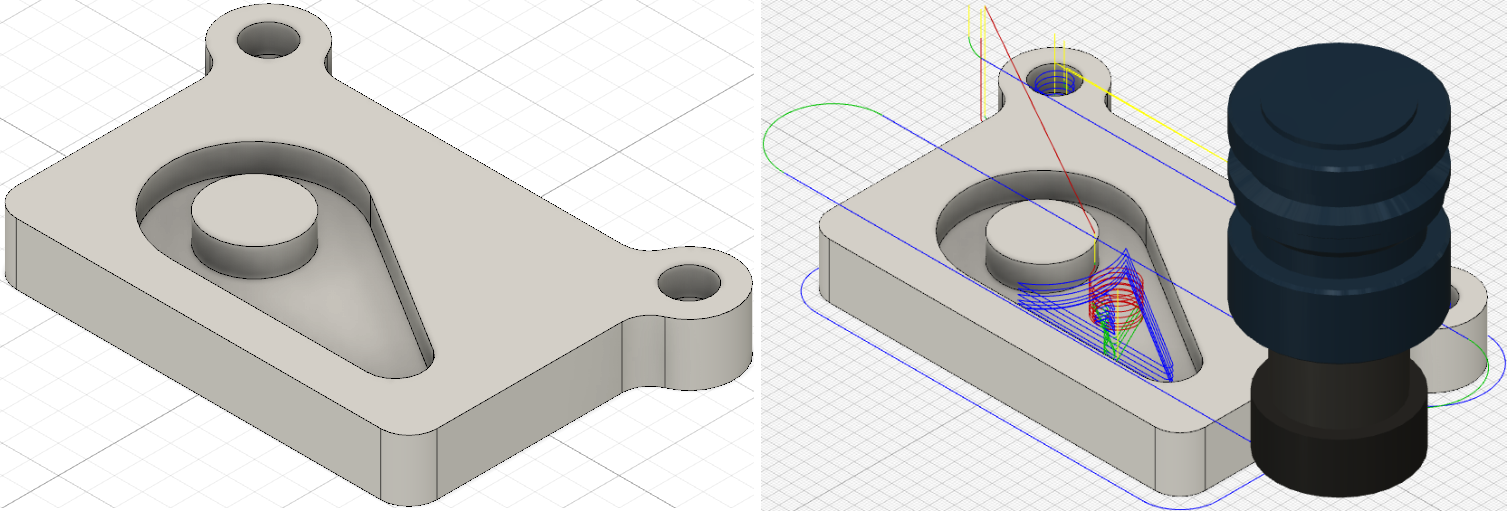 |
2D machining tutorial In this tutorial, you explore various 2D machining tools as you create toolpaths to machine a part. |
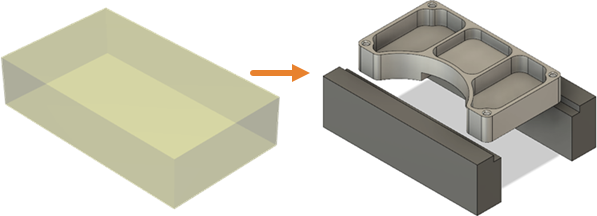 |
2D adaptive milling tutorial In this tutorial, you practice using techniques you've used in previous tutorials, to machine a part from stock material. You simulate and post-process the toolpaths, to generate the NC code.. |
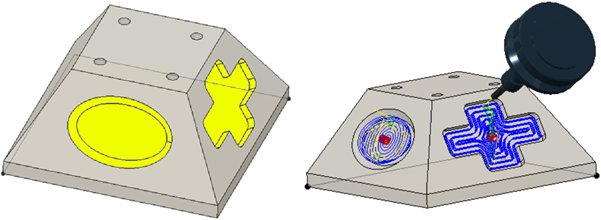 |
3+2 machining with adaptive and pocket clearing tutorial In this tutorial, you use 3+2 machining to create two features with a single setup. You use adaptive clearing for one feature and pocket clearing for the second. |
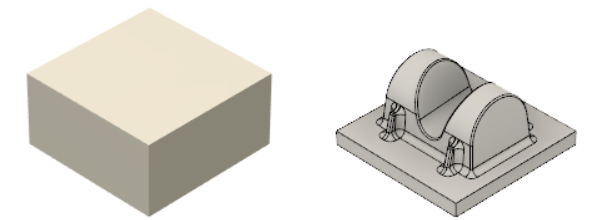 |
High-speed 3D machining tutorial In this tutorial, you machine a part on a high-speed machine tool using techniques you've used in previous tutorials, and practice some new commands. |
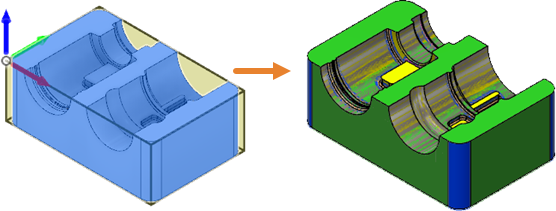 |
Advanced 3D machining tutorial In this tutorial, you practice high-speed machining skills and try some new techniques for 3D machining. You reduce the left over material with progressively smaller tools, using the Rest machining toolpath option. |
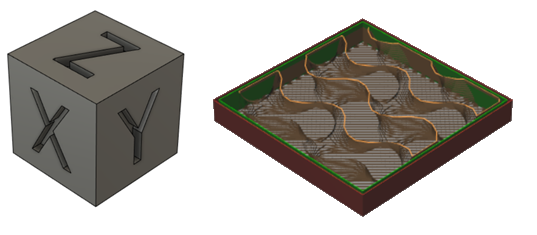 |
Additive FFF tutorial This tutorial demonstrates all the steps required to get from a 3D model of a part to the G-code print file ready to be executed by a fused-filament fabrication machine. |
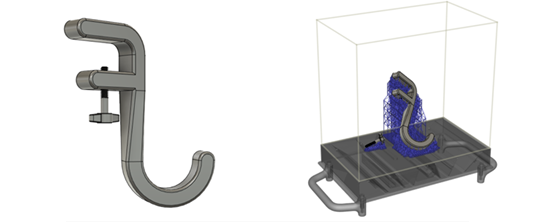 |
Additive SLA tutorial In this tutorial, you take a design of a desk hook and prepare it for 3D printing using a Formlabs SLA (stereolithography) printer. |
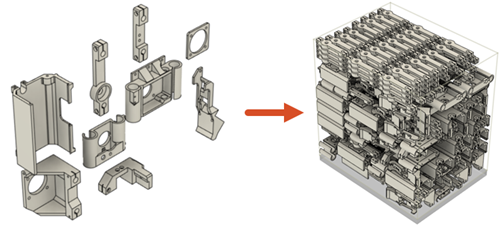 |
Additive MJF tutorial In this tutorial, you duplicate and arrange components for additive MJF (multi-jet fusion) printing using Fusion, ensuring efficient use of the printer's build volume. |
 |
Additive process simulation tutorial In this tutorial, you set up and solve a process simulation for a part manufactured using powder bed fusion manufacturing. |
Here are some additional courses and resources to help you get the most out of your experience: